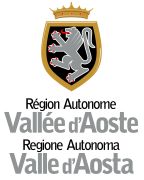
This political lab will explore the challenges related to brain drain, regional depopulation, NEETs and attracting international talent. Together, we aim to illustrate local strategies, concrete and innovative solutions and best practices. This discussion will show how the development of cross-border skills can help grow local businesses and enhance local workforces. All together it will make regions more resilient, sustainable and inclusive when facing common future challenges.
- Territorial | Rural | Local and regional | INTERREG | EU/ European | Climate and environment | Sustainable | Cohesion | Demographics (depopulation and ageing) | Social inclusion and Equality | Education and culture | Youth and citizens engagement | Jobs and Employment
- Code: 09PW241166
Speakers
Practical information
- When
-
Wed 09/10/2024, 11:30 - 13:00 CET
- Type of partnership
- Regional partnership
- Format
- CoR Political WorkShop
- Theme
-
Regions got talent
- Languages
- English, Italian, French
- Websites
-
https://www.regione.vda.it/
https://www.europaregion.info/it/
https://www.regione.puglia.it/
https://www.west-norway.no/
https://warmia.mazury.pl/
https://federacjafosa.pl/
https://www.talentcenter.bz.it/en/talentcenter.html

Partner

Valle d'Aosta Autonomous Region
Documents
Reporting
Session summary
#EURegionsWeek Brain Gain Workshop
This summary aim to evaluate the overall success of the #EURegionsWeek Brain Gain workshop, identify key strengths and areas for improvement to enhance future sessions and discuss specific action items and recommendations.
Summary of Key Feedback
The workshop received positive remarks - both from the internal and the external side - for several aspects:
1) Format Choice: The selection of a political workshop format at the European Committee of the Regions was praised because it enabled Italian and English translation services, enhancing accessibility and inclusivity and it simplified Technical and Logistical Aspects, allowing the event to run smoothly without major complications.
2) Strong Attendance Numbers: The event saw high participation, with approximately 175 attendees in person and 165 joining online.
Structured Debate: The debate segment was successful due to prepared backup questions, ensuring continuous engagement and avoiding any dead air.
3) Regional Collaboration: Close collaboration among the regions was noted, as they effectively addressed minor technical issues, even in the lead-up to the event.
4) Reinforcement of Regional Ties: The event fostered renewed collaborations among regions, such as between Valle d’Aosta and Warmia-Mazury, highlighting the workshop's networking value.



